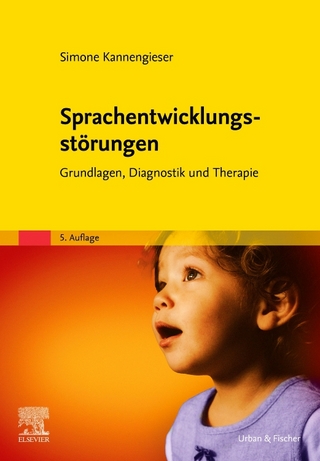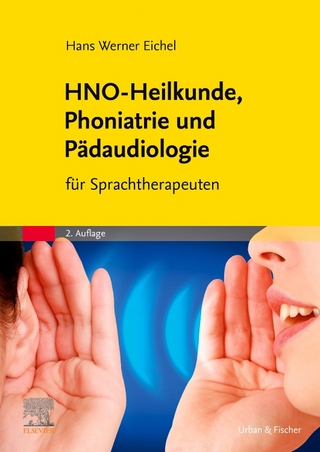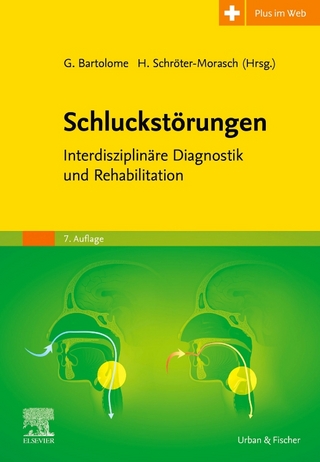
Speech-Language Pathology Assistants
Plural Publishing Inc (Verlag)
978-1-63550-415-6 (ISBN)
The new third edition of the bestselling Speech-Language Pathology Assistants: A Resource Manual is an essential, practical, and easy-to-use resource for SLPAs and SLPA educators and their students. The text defines the roles of SLPAs and their supervisors - offering additional insight into the scope of practice of an SLPA per current American Speech-Language-Hearing Association (ASHA) recommendations - and includes discussions, strategies, and examples of real-world issues, such as using augmentative and alternative communication (AAC) and working with individuals with autism spectrum disorders (ASD). Also included within the chapters are important factors and modifications that can enhance the effectiveness of treatment activities. For example, using behavioral principles and incorporating play, literacy, and speech sound remediation into treatment or modifying the clinical interface to enhance group therapy dynamics for children and adults.
Initial chapters are devoted to specific aspects of an SLPA's development, such as chapters on ways SLPAs can enhance clinical service through understanding of goals, lesson plans, data collection, and note-writing. Likewise, chapters on professional practice offer insight into ethical problem-solving, presenting a professional image, developing mentoring relationships, working with culturally and linguistically diverse populations, and the use of self-reflection for self-improvement. These chapters are followed by key principles for SLPAs to incorporate in clinical services provided to specific populations and disorders.
Jennifer A. Ostergren, PhD, CCC-SLP is the Dean of the College of Education, Health and Human Services at California State University, San Marcos. She is a licensed speech-language pathologist with more than 20 years of experience working with adults with neurologic cognitive and communication disorders across the spectrum of rehabilitation settings. Dr. Ostergren is a published author and a national and international speaker in the areas of rehabilitation following traumatic brain injury (TBI) and support personnel in the field of speech-language pathology. She has specialized training in futures thinking and an interest in the futures of work, health, and education. ***** Margaret Vento-Wilson, PhD, CCC-SLP is an assistant professor in the Department of Speech-Language Pathology in College of Health and Human Services at California State University of Long Beach. Dr. Vento-Wilson has been a practicing speech-language pathologist for many years and has worked in the school system and in private practice. When in the school setting, Dr. Vento-Wilson frequently worked with undergraduate students in their SLPA practicum. Dr. Vento-Wilson has published in the areas of motor speech disorders, congenital aglossia, disorders of child language, school-based intervention, and augmentative and alternative communication (AAC). She has presented at the national and state level on AAC in the schools, aided language acquisition, and narrative intervention.
Preface
Acknowledgements
Contributors
Part I: Defining Roles: Speech-Language Pathology Assistants (SLPAs)
Chapter 1. Defining Roles: SLPAs
Chapter 2. Defining Roles: Supervision and Mentoring
Chapter 3. Ethical Conduct
Chapter 4. Professional Conduct
Chapter 5. Cultural and Linguistic
Carolyn Conway-Madding
Chapter 6. Health and Safety
Pei-Fang Hung
Part II: Skills Development
Chapter 7. Deciphering Lesson Plans and Goals
Jennifer A. Ostergren and Stephanie L. Peterson
Chapter 8. Data Collection
Chapter 9. Note Writing
Chapter 10. Implementing Treatment
Chapter 11. Using Behavioral Principles
Jennifer A. Ostergren and Stephanie P. Davis
Chapter 12. Group Therapy
Jennifer A. Ostergren and Sarah Guzzino-Herrick
Part III: Treatment for Specific Population and Disorders
Chapter 13. Speech Sound Remediation for Children
Chapter 14. Early Intervention
Margaret Vento-Wilson
Chapter 15. Language Intervention for Children
Margaret Vento-Wilson
Chapter 16. Incorporating Play and Literacy in Treatment
Sara M. Aguilar
Chapter 17. Autism Spectrum Disorder (ASD)
Jodi Robledo
Chapter 18. Augmentative and Alternative Communication
Margaret Vento-Wilson
Chapter 19. Adults with Acquired Neurologic Disorders
Jennifer A. Ostergren and Carley B. Crandall
| Erscheinungsdatum | 20.02.2023 |
|---|---|
| Verlagsort | San Diego |
| Sprache | englisch |
| Maße | 178 x 254 mm |
| Themenwelt | Medizin / Pharmazie ► Gesundheitsfachberufe ► Logopädie |
| ISBN-10 | 1-63550-415-5 / 1635504155 |
| ISBN-13 | 978-1-63550-415-6 / 9781635504156 |
| Zustand | Neuware |
| Haben Sie eine Frage zum Produkt? |
aus dem Bereich


